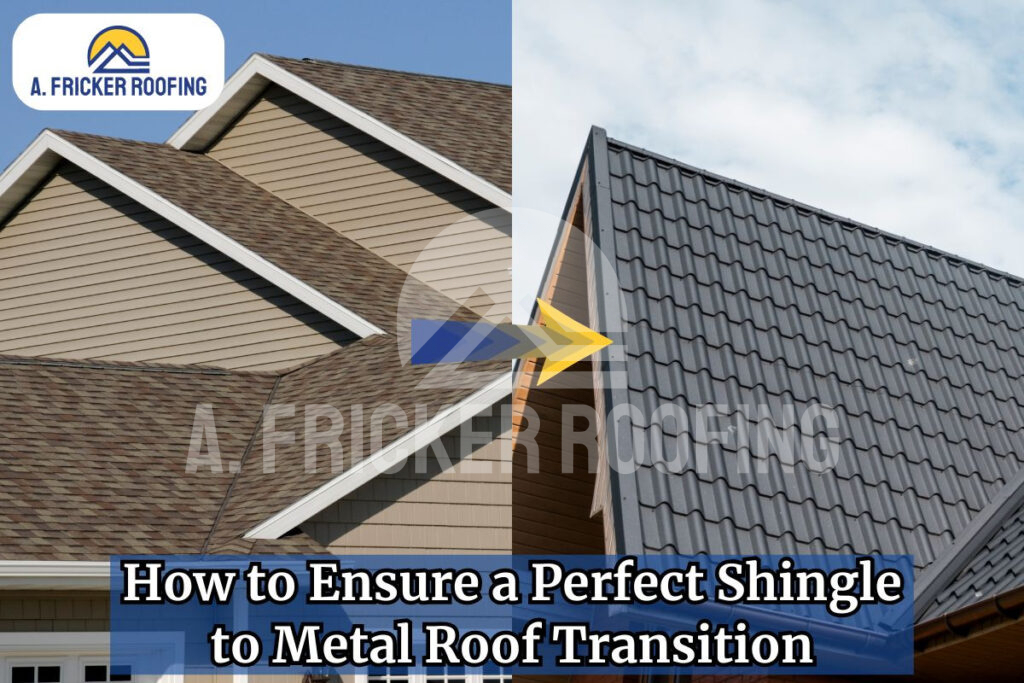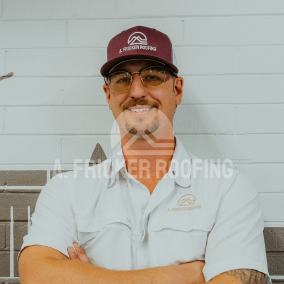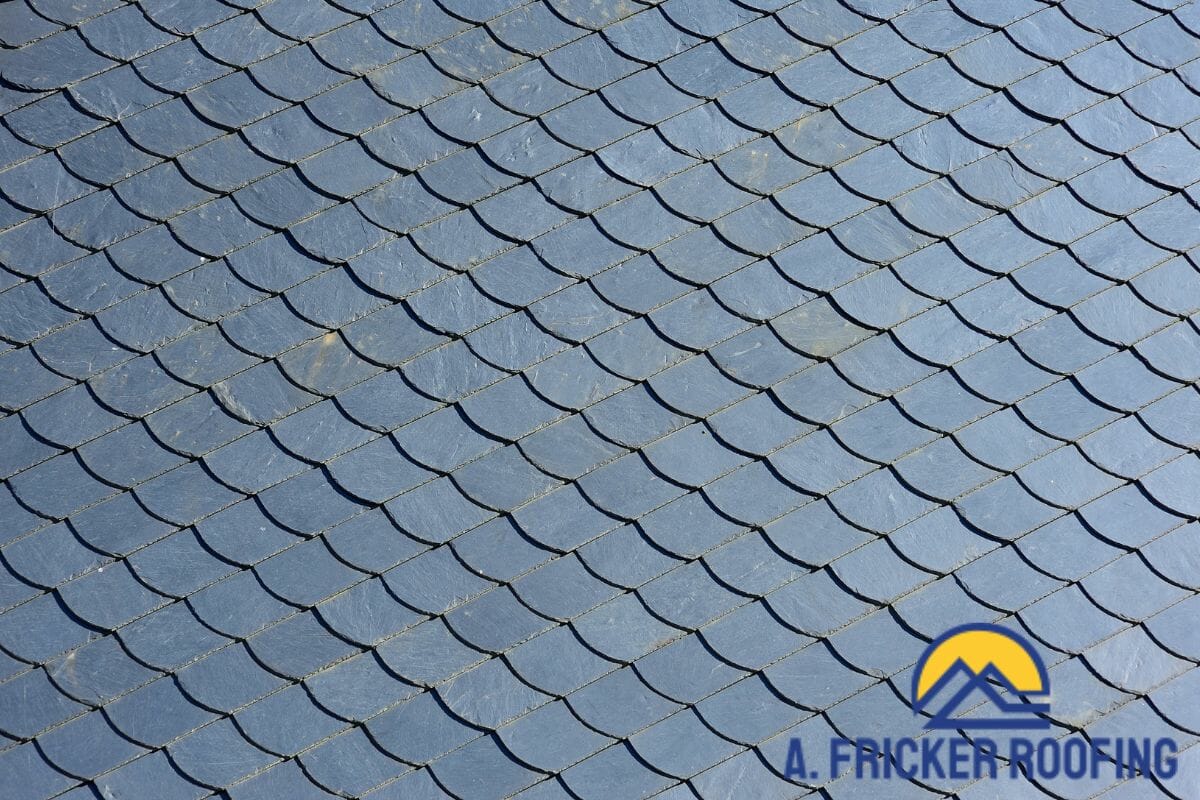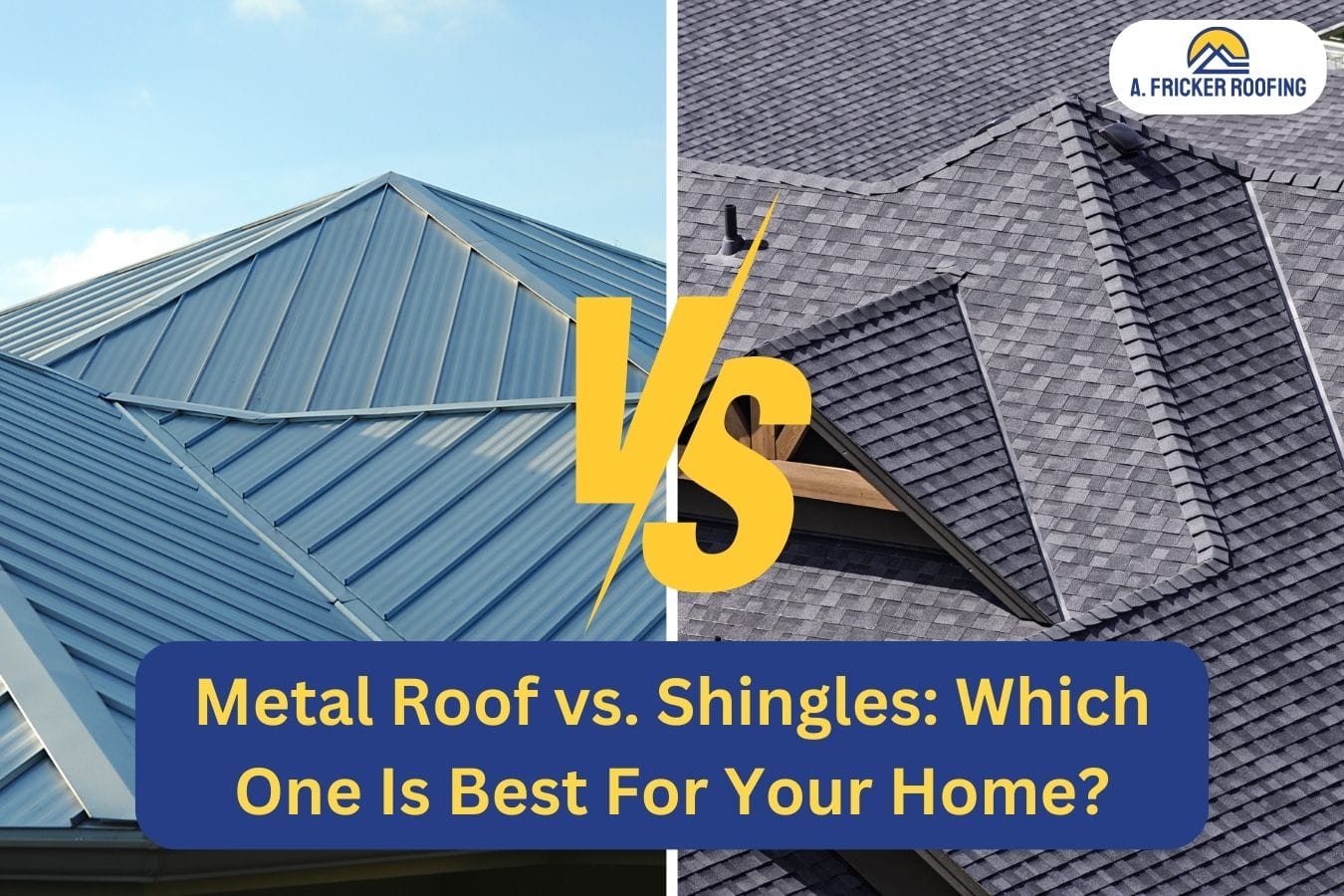
Asphalt shingles are the most popular type of roofing material in Oklahoma, and have been for years. However, metal roofs have also made quite a strong impression in the last few years, and many homeowners now want to install a metal roof when it comes time to replace their old shingle one.
If you are also considering switching from asphalt shingles to metal, you are in the right place. Since both materials are quite different from each other, it is important to ensure a seamless shingle to metal roof transition. That’s why, in this blog post, we will talk about the benefits and limitations of replacing asphalt shingles with metal roof panels and what things you need to look at when you begin the replacement process.
Why Metal Roofs Have Become So Popular

Metal roofs have surged in popularity for good reason. Here’s why homeowners are increasingly choosing metal over traditional asphalt shingles for their next roof replacement project:
Metal Roofs Last Longer Than Shingles
One of the major differences, and why people are choosing metal over shingles is because of the former’s longevity. Metal roofing systems can last for more than 50 years with ease, and have an average lifespan of 40 to 70 years, significantly outlasting the 15 to 25 year lifespan of asphalt shingles.
Since they’re such a great long-term investment, transitioning to a metal roof is a smart choice when you own your home, are settled in the area, and are not looking to move anytime soon.
Durability
The reason why metal roofs have such a long lifespan is because they are durable. Metal roofs are highly resistant to extreme weather conditions, including high winds, heavy rain, and hail. They also fare well against natural wear and tear and algae growth, which most shingles often fall prey to. This durability means fewer repairs and replacements over time.
Energy Efficiency
Not a lot of roofing materials can come close to beating the energy efficiency metal roofs offer. Almost all types of metal, be it aluminum, steel, or copper, reflect a significant amount of solar radiation, which can help keep your home cooler during hot summer months. This reflectivity can potentially reduce cooling costs by 10 to 25%, depending on your local climate and home design.
Eco Friendly
In today’s environmentally conscious world, metal roofs stand out as a sustainable choice. Most metal roofs are typically made with around 25 to 95% recycled materials, meaning at the end of their life cycle, they can also be recycled.
Low Maintenance
Another crucial reason why many homeowners are looking to replace their shingle roofs with new metal ones is because of its low maintenance nature. Unlike asphalt shingles that can crack, curl, or lose granules over time, metal roofs maintain their integrity for decades with minimal upkeep. They don’t require individual sections to be frequently repaired or replaced.
Are There Any Disadvantages To Switching To A Metal Roof?

Metal roofs tend to check most of the boxes when it comes to being the right roofing material, but it does have its limitations.
High Initial Cost
Why are asphalt shingles still the most popular roofing material in the country? Because of their affordability, which metal roofs lack. These roofs typically have a higher upfront cost compared to shingles, which can be a significant downside for some homeowners. However, the benefits that metal roofs provide may make the investment worth it in the long run.
Noise Concerns
A common worry with metal roofs is the amount of noise they make during rain or hail storms. However, modern installation techniques have largely reduced this issue by utilizing proper insulation and underlayment.
Trickier To Install and Replace
Installing a metal roof requires specialized skills, knowledge, and tools that differ from shingle installation. Finding contractors with extensive experience in metal roof installation can be challenging in some areas.
What Are The Challenges Of A Metal Roof To Shingle Transition?
The transition from shingles to a metal roof seems like a good option since metal roofs are more durable and last longer. However, this process isn’t without its challenges, and there are a few problems you may face:
Structural Issues:
Shingles are extremely lightweight as most of them have a single-strip design. Even premier shingle lines are quite light and can be installed on a majority of the roofs without changes needing to be made to the roof’s structure. However, during a shingle-to-metal roof transition, you need to ensure the roofing structure is prepared to handle the distribution of weight that metal roofs call for.
Existing Roof Condition

There are two ways to install a metal roofing system on your roof. You can either install it directly over your existing shingles or choose the conventional method, in which the old roofing material is removed first, and then replaced with new metal roofing panels.
Installing a metal roof over shingles is never a good idea as there are several problems associated with it. Check out our blog post: 5 Problems With A Metal Roof Over Shingles That You Shouldn’t Ignore, for more information. Overall, we advise the complete removal of your old roofing system prior to installing a metal one.
Choosing the Right Metal Roofing System:
There are several types of metal roofs available, both in terms of style and materials. Choosing among all the options can be quite a challenge, but always make sure to select a metal roofing system suitable for your climate, considering factors like snow loads, wind resistance, and heat reflection properties.
Key Considerations for a Successful Transition
Do you want to ensure that your shingle-to-metal roof transition is done correctly and without any issues? If so, then consider the following before your project:
Professional Structural Assessment:
Have a qualified engineer or contractor evaluate your home’s structure to ensure it can support a metal roof. Address any necessary repairs before installation.
Comprehensive Roof Inspection:
Thoroughly assess your existing roof. Determine whether a complete tear-off is needed, or if you can install one over existing shingles. Factor this into your budget and timeline too.
Select And Install Proper Underlayment:
Choose high-quality underlayment to prevent condensation, reduce noise, and enhance insulation. There are several types of underlayment that are made for metal roofing systems so choose the one that best suits the needs of your building.
Optimize Ventilation:
Design an effective ventilation system with your contractor. Add or adjust roof vents to ensure proper airflow and prevent moisture buildup.
Plan Flashing And Waterproofing Details:
Have your contractor create a detailed plan for flashing around chimneys, vents, and other penetrations. Use high-quality, compatible sealants and fasteners to ensure the roof is properly waterproof.
Install The Appropriate Fasteners:
Select high-quality screws and fasteners specifically designed for metal roofs and ensure they are corrosion-resistant and compatible with your chosen metal roofing material.
Proper installation of these fasteners is critical to prevent leaks and maintain the roof’s integrity over time.
Hire The Right Team For A Shingle To Metal Roof Transition
Switching from asphalt shingles to a metal roof is definitely an upgrade, but in order to get the maximum benefits it’s essential to get the help of experienced roofing professionals in Oklahoma.
A. Fricker Roofing & Waterproofing is a premier roofing company serving Broken Arrow, Tulsa, and the surrounding areas in Oklahoma. Our team has years of experience in roof replacements. We’ll tear off the old roofing material before installing your new metal roof, and only use the best materials from quality manufacturers. Contact us today at (918) 402-7167 to learn more.



